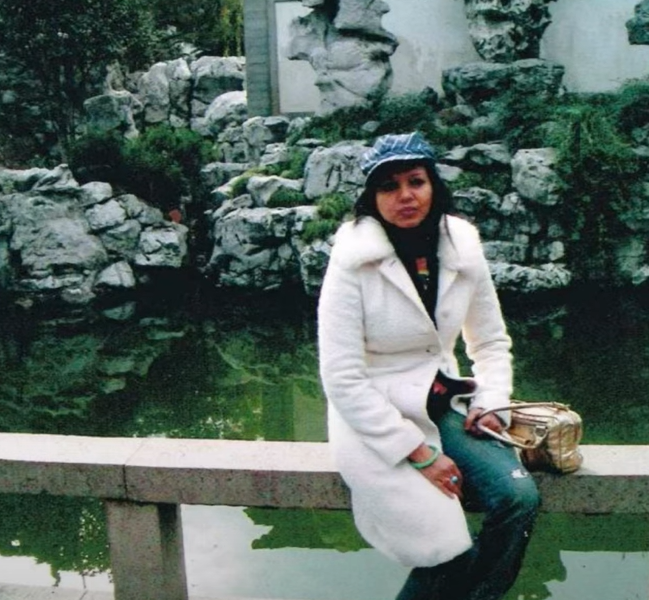US counterterrorism officials are voicing increased alarm about an al-Qaida affiliate in Syria that they say is plotting attacks against the West by exploiting the chaotic security situation in the country’s northwest and the protection inadvertently afforded by Russian air defenses shielding Syrian government forces allied with Moscow.
The rise of this latest Qaida branch in Syria, as well as operations of other Qaida affiliates in West Africa, Somalia, Yemen and Afghanistan, underscore the terrorist group’s enduring threat despite the death of Osama bin Laden and being largely eclipsed in recent years by the Islamic State, or ISIS, as the terrorist group of choice of global jihadis.
The new Qaida branch, called Hurras al-Din, emerged in early 2018 after several factions broke away from a larger affiliate in Syria. It is the successor to the Khorasan Group, a small but dangerous organisation of hardened senior Qaida operatives that Ayman al-Zawahri, al-Qaida’s leader, sent to Syria to plot attacks against the West.
The Khorasan Group was effectively wiped out by a series of US airstrikes a few years ago. But with as many as 2,000 fighters, including seasoned leaders from Jordan and Egypt, the successor Hurras al-Din group is much larger and is operating in areas where Russian air defenses largely shield them from US airstrikes and the persistent stare of US surveillance planes. Moscow dispatched military aid and advisers to Syria in late 2015 to support the beleaguered government of President Bashar Assad.
Hurras al-Din is considered so dangerous that the Pentagon in at least one instance took the unusual step of using a special hotline with Russian commanders in Syria to allow the US military to conduct uncontested airstrikes against Qaida leaders and training camps in Aleppo and Idlib provinces in June and August. Those were rare attacks west of the unofficial dividing line between US forces to the east of the Euphrates River, and Russian and Syrian government troops west of the river.
“Al-Qaida has been strategic and patient over the past several years,” Nathan Sales, the State Department’s counterterrorism coordinator, said last month about the terrorist group and its affiliates. “It let ISIS absorb the brunt of the world’s counterterrorism efforts while patiently reconstituting itself.”
Pieter-Jaap Aalbersberg, the Dutch counterterrorism coordinator, added in an interview: “There is still a general threat out of al-Qaida, slowly building.”
Qaida operatives have moved in and out of Syria for years. In 2013, Zawahri dispatched senior jihadis to bolster the Qaida affiliate in Syria, then known as the Nusra Front. A year later, Zawahri sent to Syria a shadowy Qaida cell called Khorasan that US officials said has been plotting attacks against the West.
Idlib province, whose population has ballooned to more than 3 million people during Syria’s civil war, contains a witch’s brew of violent Islamic extremist groups, dominated by the larger Qaida-linked organisation Hayat Tahrir al-Sham, formerly the Nusra Front. Syrian military forces, backed by Iranian and Russian firepower, have targeted the group in a four-month air and ground offensive that has driven hundreds of thousands of Syrian civilians, some displaced from other parts of the country, toward Turkey’s closed-off border. A fragile cease-fire brokered in late August has been holding despite some violations.
Hayat Tahrir al-Sham has between 12,000 and 15,000 fighters, and has centered its agenda on combating the government of Assad, with no interest in conducting attacks abroad, according to a recent United Nations assessment.
“Hurras al-Din,” the assessment said, “is believed to have between 1,500 and 2,000 fighters, half of whom are foreign terrorist fighters, a much higher proportion than in the case of” Hayat Tahir al-Sham. Hurras al-Din also has a much more international focus, the UN assessment concluded.
“This is an opportunity al-Qaida can use to put them back on the map,” said Colin Clarke, a senior fellow at the Soufan Center, a research organisation for global security issues, and an author of a recent article in Foreign Policy about al-Qaida’s resurgence.
The military’s secretive Joint Special Operations Command has seized on intelligence gathered over time to strike Hurras al-Din fighters and leaders. On Jun 30, the military said it carried out an air attack on a training facility near Aleppo province. “This operation targeted AQ-S operatives responsible for plotting external attacks threatening US citizens, our partners, and innocent civilians,” the Pentagon’s Central Command said in a statement, referring to al-Qaida in Syria.
Then, on Aug 31, the military said it conducted an airstrike against an al-Qaida leadership facility north of Idlib. “Northwest Syria remains a safe haven where AQ-S leaders actively coordinate terrorist activities throughout the region and in the West,” the military said in a statement.
The Pentagon publicly does not distinguish between Hurras al-Din and Hayat Tahrir al-Sham, calling them both al-Qaida in Syria, but US analysts privately said Hurras al-Din poses the larger threat to the West and are the militants being targeted.
The Trump administration has also stepped up diplomatic and intelligence-gathering efforts against Hurras al-Din. This month, the State Department designated Hurras al-Din as a terrorist organisation, and offered a reward of up to $5 million each for information on three of the group’s leaders who “have been active in al-Qaida for years and remain loyal” to Zawahri.
The State Department and the UN have presented descriptions of the three leaders, and the following descriptions are based on those assessments.
Hurras al-Din initially wanted to present a Syrian identity, so a Syrian national, Faruq al-Suri, also known as Samir Hijazi and Abu Hammam al-Shami, was appointed as its overall commander, according to State Department and UN assessments. “He fought in Afghanistan in the 1990s,” according to the State Department assessment, “and trained Qaida fighters in Iraq, among other activities.” Hijazi had previously been reported killed, but reports differed on when and how he might have died.
A second leader, Abu Abd al-Karim al-Masri, also known as Karim, is an Egyptian national. In 2018, al-Masri was a member of Hurras al-Din’s leadership team and was a mediator between the group and the Nusra Front.
The third official, Sami al-Uraydi, also known as Abu Mahmud al-Shami, is a Jordanian national. “He previously was involved in terrorist plots against the United States and Israel,” the State Department assessment said.
Hurras al-Din’s “foreign terrorist ranks also include fighters from Central Asia and Morocco,” according to the UN assessment.






















